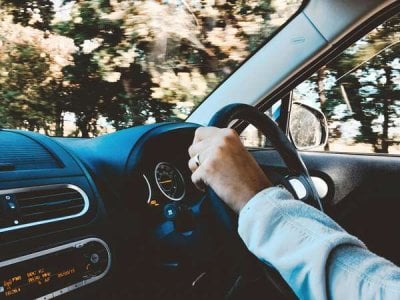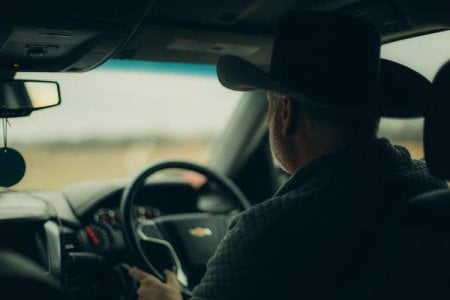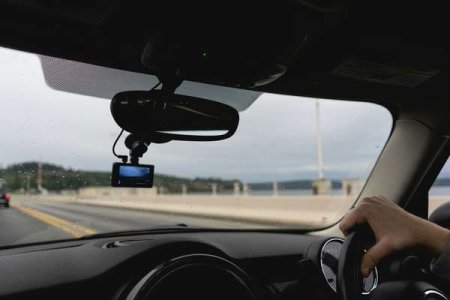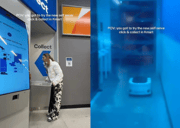Car Dilemma: Can this tiny gadget add a layer of security for older Aussie drivers?
By
Danielle G.
- Replies 0
Imagine you're cruising down a familiar suburban road, on your way to the shops, when suddenly a car swerves in front of you. Your heart skips a beat. Later, when sorting out the blame, you find yourself wishing there was an unbiased witness to back up your story. Enter the dashboard camera – or “dash cam” – the tiny gadget that's fast becoming as common as seatbelts in Australian cars. But is it truly a guardian angel for senior drivers, or a possible trap waiting to spring?
In this editorial, we’ll explore the pros and cons of dash cams for older drivers in Australia. We’ll keep it informal and conversational, just like a chat over a cuppa, and dig into both the practical benefits and the legal grey areas. Buckle up as we take a balanced look at whether dash cams protect or implicate our senior motorists, all while keeping things entertaining and informative.
Australia has seen a surge in dash cam usage in recent years. Almost half of Australian drivers believe dash cams should be mandatory in all new vehicles. That’s a striking figure – but funnily enough, only about one in four drivers actually has one installed. This gap between belief and action hints at an underlying ambivalence: people like the idea of having every moment on the road recorded, but something’s holding them back.
What exactly is a dash cam? In case you’re not tech-savvy, it’s a small camera mounted on your windscreen or dashboard that continuously records the road ahead (and sometimes the rear or interior, depending on the model). Think of it as a “black box” for your car, quietly saving footage of each trip. Some even record audio or speed and GPS data. If you’ve ever watched the evening news and seen wild footage of a near-miss or a rogue driver, chances are a dash cam was behind it.
So why are drivers, including many seniors, flocking to buy these gadgets? The reasons range from safety to settling the he-said-she-said disputes after a crash. A report by dash cam manufacturer Nextbase found that 45% of Australian drivers reckon dash cams should be standard, even though only 25% actually use them. It’s clear that Australians like the notion of having an “eye-witness” camera on board – especially for that dreaded moment when an accident happens and stories conflict.
Yet, for all this enthusiasm, many hesitate. One big reason is fear of self-incrimination. The last thing anyone wants is their own gadget ratting them out! As legal expert Aidan Ricciardo from the University of Western Australia points out, Aussie drivers worry that dash cam footage “could incriminate them,” and those fears are “valid”. If you’re in a serious accident, police will likely seize your camera’s footage if they know it exists, and they can use it as evidence. In other words, your dash cam could just as easily be used against you as it could to defend you – a point Mr Ricciardo underscores: “It could just as readily be used against you as it could to protect your legitimate interests; it could be used to protect someone else’s interests”.
For older drivers in particular, this dash cam debate hits close to home. Seniors have skin in the game on road safety. Drivers over 65 are among the most likely to be involved in crashes, accounting for 26% of insurance claims – more than any other age group. Australia’s ageing population means more seniors are on the road, whether it’s retirees doing the school run for the grandkids or “grey nomads” towing caravans across the Nullarbor. “There are a lot of older people on the road, particularly caravanning,” notes 76-year-old Jon Doust, who regularly drives long distances in Western Australia. With so many senior Aussies behind the wheel, the question of whether to record every moment of their drive isn’t just theoretical – it’s personal.
A driver checks his dash cam device before hitting the road. Dash cams affix to the windscreen and continuously record the journey, offering an unbiased “witness” should an incident occur.
Let’s start with the good stuff – the reasons many older drivers are giving dash cams a go. For a demographic that values safety, independence, and peace of mind, dash cams offer some pretty compelling benefits:
To sum up the upsides: a dash cam is like having an honest witness riding shotgun. For older drivers who often face stereotypes about being “unsafe” or “slow,” it can be a great equalizer – the camera provides facts, not opinions. And if you’re a law-abiding, careful driver (which most seniors are), experts say the camera will likely do more good than harm. “If you’re someone who’s unlikely to get into incidents on your own, it does more to protect you than it does to harm you,” Mr Ricciardo notes. In other words, if you drive responsibly, the footage will mostly serve to vindicate you, not incriminate you.
Alright, now for the flip side. Like any technology, dash cams aren’t all sunshine and roses. There are some real considerations – especially for seniors – that give pause. In the spirit of balance, let’s delve into those concerns:
Dash cam footage can help piece together what happened in accidents like this one, aiding investigations. However, if the recorded evidence shows you were at fault, it could be a double-edged sword in legal terms. Always drive as if the camera wasn’t there – don’t rely on it to save the day.
Before you rush to buy a dash cam or rip one out of your car in panic, it’s worth understanding the legal landscape in Australia. The good news: dash cams are legal in Australia, and there’s no law against recording public road footage. You won’t find a cop pulling you over just for having a camera rolling. In fact, law enforcement often welcomes the additional evidence dash cams provide when investigating incidents.
However, as mentioned, privacy laws can vary by state, especially regarding audio. Australia has both federal and state-based privacy and surveillance legislation. Generally, filming in public is fine, but recording audio of private conversations without consent is not (this is covered under each state’s Surveillance Devices Act or equivalent). For example, in Western Australia it’s illegal to record a “private activity” without consent – imagine you have a dash cam with an interior camera filming inside the car; if it records a private conversation between you and your passenger without consent, that’s problematic. NSW, as we noted, advises caution with audio recording. The simple solution: many dash cams let you disable audio recording – a wise step if you often have passengers. Or inform your passengers that audio might be recorded (even put a little sticker “Smile, you’re on dash cam!” – half-joking).
Another legal consideration: evidence admissibility. Courts will usually accept dash cam footage, provided it’s obtained legally (i.e., you weren’t trespassing or doing something illegal to get the footage). The ABC News story that prompted this editorial quoted Mr Ricciardo saying courts treat dash cam video as “generally reliable” evidence, and it’s increasingly being used, especially in criminal traffic cases. But there is a process – police often need a warrant or your consent to retrieve the footage from your device if you don’t hand it over willingly. Refusing to hand it over can look bad, and they can get a warrant anyway, so cooperation is usually best if you’re involved in a serious crash investigation. In minor fender-benders, you’re usually sharing it by choice to prove your point to insurers or police.
Also, be aware: dash cam footage can be subpoenaed. If you witnessed an accident (not even involved yourself) and your camera caught it, the police might request your footage as evidence for someone else’s case. There have been instances where dash cam owners provided crucial evidence in hit-and-run cases or to identify reckless drivers. This is generally a good thing – we all want justice served – but it means by having a dash cam, you become a potential source of evidence for any incident around you. Some might find that civic-duty aspect gratifying; others might see it as a hassle.
On the flip side, Australian authorities haven’t moved to make dash cams mandatory (unlike some countries that toyed with the idea). There’s also no movement to ban them or restrict them heavily. In fact, road safety experts are mostly in favor of more dash cams out there, because it promotes accountability. Mr Ricciardo suggested that if more drivers owned dash cams, it would help courts find the truth and administer justice more effectively. And indeed, nearly half of Aussie drivers surveyed wanted them standard in new cars. So it’s likely we’ll see more acceptance of dash cams, not less, in the coming years.
One more local quirk to consider: some regions have a high proportion of older drivers and also higher accident rates, raising the stakes for having a dash cam. Take Queensland’s Sunshine Coast or NSW’s Mid North Coast – popular retiree destinations where seniors make up a big chunk of the driver population. These areas often involve mixing it up with holidaymakers, heavy traffic, and sometimes unpredictable road conditions. In such places, having a dash cam could be extra useful because if an incident occurs, you might not have many witnesses on a quiet rural road, or conversely, you might encounter drivers from all over (some of whom might drive differently than you’re used to). Western Australia has its grey nomad routes – long, remote highways where, if something goes wrong, the truth might be hard to piece together without footage. And in cities like Adelaide or Perth, which have older populations compared to, say, Sydney, the conversation about older drivers and safety is already lively. South Australia’s Transport Accident Commission notes that each year, around 250 Australians aged 65+ die in road crashes and 4,000 are hospitalized. That’s a sobering statistic, and it underscores why safety measures – possibly including dash cams – are a hot topic.
It’s also worth noting differences in older driver licensing rules across Australia, since that context might influence dash cam adoption. For instance, in NSW and QLD, once you hit 75 you need annual medicals to keep your licence, and in some cases additional driving tests as you get into your 80s. Victoria, by contrast, has no mandatory age-based re-testing – a policy some actually praise as “leading the country” in focusing on ability, not age. Why does this matter for dash cams? Well, older drivers in stricter states might feel more pressure to prove their fitness – and a dash cam can be a tool to self-monitor or demonstrate their safe driving habits. In looser regimes like Victoria, a dash cam might simply be a personal choice for peace of mind rather than to counter any external scrutiny. In any case, the universal truth is that older drivers, while statistically having fewer crashes per driver, are more fragile – meaning if a crash does occur, they’re more likely to be seriously hurt. Dash cam or not, avoiding crashes is the number one goal. But if a crash happens, having that footage could at least ensure that justice is served and the right lessons are learned.
So where do we land after all this? If you’re an older Aussie driver reading along (or perhaps the child of one, concerned about Mum or Dad on the road), you might be feeling a bit torn. Dash cams offer tangible benefits: security, evidence, confidence. They’ve helped people save money and clear their name, and they’re another set of eyes when you need them most. On quiet days, you’ll barely remember it’s there – until that “thank goodness I had it” moment arrives.
On the other hand, they come with trade-offs. You’re recording your mistakes as well as your triumphs. You have to be okay with the possibility of your own footage being used to show you were in the wrong. You have to manage a bit of tech and ensure you’re not inadvertently recording things you shouldn’t. Some seniors may find the entire concept unnecessary: “I’ve driven 50 years without a dash cam and never needed one, why start now?” – and that’s a fair point too. If you’re uncomfortable with it, you shouldn’t be pressured to get one.
It really boils down to personal comfort and your individual driving context. Are you frequently driving in hectic traffic or long road trips where the risks are higher? Do you feel confident in your driving habits such that a recorded replay doesn’t worry you? Or do you primarily just potter down to the local shops at 40 km/h and prefer not to complicate things? Also, how tech-savvy are you or your support network? For those with an adult child or friend who can help with setup and maintenance, the hurdles diminish significantly.
Many seniors have become dash cam converts after a single incident – the near-miss that made them think “Next time, I want that on camera,” or the fender-bender that ended up in a tussle over fault. The psychological comfort a dash cam can provide is not trivial: knowing that you have an “insurance policy” of truth riding along can make driving less stressful. It’s like having a witness in the passenger seat at all times.
However, it’s also entirely valid to decide that you’d rather not have your every driving moment documented. Some feel it’s an invasion of their last bastion of solitude – the drive where you can sing to the radio or talk to yourself without worrying about being recorded (though you can still do that; if you disable audio, no one will hear your solo karaoke sessions!). Others might worry about what happens if they forget the camera is there and do something embarrassing – like accidentally backing into a pole in an empty car park – and that video somehow gets seen by others. These concerns might seem minor, but they’re part of the equation.
One thing’s for sure: dash cams are here to stay, and likely to become even more common. Car manufacturers may eventually integrate them into vehicles by default. For senior drivers, this could be a boon – built-in systems that require no fuss. Until then, it’s a DIY add-on that’s worth considering.
As we wrap up, it’s clear that dash cams can be both a guardian angel and a bit of a pest, depending on how they’re used. Much like a real guardian angel, a dash cam can’t prevent misfortune, but it can illuminate the truth when misfortune strikes. And like any tool, it must be wielded wisely – with an understanding of its limitations and pitfalls.
So, would you install a dash cam in your car? Do you see it as a worthwhile protector on your drives, or an unnecessary overseer in your golden years? It’s a deeply personal choice. As Australian seniors navigating a changing world of technology and traffic, making that choice involves weighing peace of mind against privacy, and security against simplicity. There’s no one-size-fits-all answer. In the end, the dash cam dilemma asks a broader question about how much we embrace technology in exchange for potential safety gains. It’s your call – after all, you’re in the driver’s seat.
What do you reckon: Is a dash cam your trusty co-pilot into your 70s and beyond, or just extra baggage on your journey?
Read more:
Dashcam reveals hidden driving danger putting drivers at risk
Dashcam captures risky rural driving mistake sending Aussie motorists into meltdown
Dashcam footage reveals 'entitled' driver’s 'reverse of shame'
In this editorial, we’ll explore the pros and cons of dash cams for older drivers in Australia. We’ll keep it informal and conversational, just like a chat over a cuppa, and dig into both the practical benefits and the legal grey areas. Buckle up as we take a balanced look at whether dash cams protect or implicate our senior motorists, all while keeping things entertaining and informative.
The Dash Cam Craze – Why All the Buzz?
Australia has seen a surge in dash cam usage in recent years. Almost half of Australian drivers believe dash cams should be mandatory in all new vehicles. That’s a striking figure – but funnily enough, only about one in four drivers actually has one installed. This gap between belief and action hints at an underlying ambivalence: people like the idea of having every moment on the road recorded, but something’s holding them back.
What exactly is a dash cam? In case you’re not tech-savvy, it’s a small camera mounted on your windscreen or dashboard that continuously records the road ahead (and sometimes the rear or interior, depending on the model). Think of it as a “black box” for your car, quietly saving footage of each trip. Some even record audio or speed and GPS data. If you’ve ever watched the evening news and seen wild footage of a near-miss or a rogue driver, chances are a dash cam was behind it.
So why are drivers, including many seniors, flocking to buy these gadgets? The reasons range from safety to settling the he-said-she-said disputes after a crash. A report by dash cam manufacturer Nextbase found that 45% of Australian drivers reckon dash cams should be standard, even though only 25% actually use them. It’s clear that Australians like the notion of having an “eye-witness” camera on board – especially for that dreaded moment when an accident happens and stories conflict.
Yet, for all this enthusiasm, many hesitate. One big reason is fear of self-incrimination. The last thing anyone wants is their own gadget ratting them out! As legal expert Aidan Ricciardo from the University of Western Australia points out, Aussie drivers worry that dash cam footage “could incriminate them,” and those fears are “valid”. If you’re in a serious accident, police will likely seize your camera’s footage if they know it exists, and they can use it as evidence. In other words, your dash cam could just as easily be used against you as it could to defend you – a point Mr Ricciardo underscores: “It could just as readily be used against you as it could to protect your legitimate interests; it could be used to protect someone else’s interests”.
For older drivers in particular, this dash cam debate hits close to home. Seniors have skin in the game on road safety. Drivers over 65 are among the most likely to be involved in crashes, accounting for 26% of insurance claims – more than any other age group. Australia’s ageing population means more seniors are on the road, whether it’s retirees doing the school run for the grandkids or “grey nomads” towing caravans across the Nullarbor. “There are a lot of older people on the road, particularly caravanning,” notes 76-year-old Jon Doust, who regularly drives long distances in Western Australia. With so many senior Aussies behind the wheel, the question of whether to record every moment of their drive isn’t just theoretical – it’s personal.
A driver checks his dash cam device before hitting the road. Dash cams affix to the windscreen and continuously record the journey, offering an unbiased “witness” should an incident occur.
Why Seniors Are Eyeing Dash Cams: The Upsides
Let’s start with the good stuff – the reasons many older drivers are giving dash cams a go. For a demographic that values safety, independence, and peace of mind, dash cams offer some pretty compelling benefits:
- Solid Evidence in Accidents: Perhaps the biggest advantage is having concrete video evidence if a crash happens. No more relying solely on memory (which can be shaky after a shock) or on potentially biased witness accounts. In fact, courts often consider dash cam footage “generally reliable, unproblematic evidence” – sometimes even more reliable than human memory, since “memory is fallible”. For an older driver who might worry that others will assume “it was the old bloke’s fault” in a collision, a dash cam can be an objective referee. It shows exactly what happened – who braked when, who ran the red light, the speed of impact – cutting through the fog of conflicting stories.
- Protection from False Claims and Scams: Sadly, not everyone on the road is honest. We’ve all heard stories of insurance fraud – like drivers who purposely stage accidents or suddenly brake to cause a rear-end collision, then blame the other party. Seniors can be targets for scams, under the assumption they might be easier to intimidate or confuse. A dash cam is your insurance policy against fraudulent claims: it’s hard for someone to lie about what happened if a camera has caught them in the act. One Reddit user shared how a young driver tried to claim he was hit by another car, but dash cam footage proved he had actually reversed aggressively into the other vehicle – the truth saved the innocent driver from a hefty payout. In short, footage doesn’t lie (at least, not when it has a timestamp and clear visuals).
- Faster and Fairer Insurance Claims: Even in honest accidents, insurance claims can turn into nightmares of “he said, she said.” Here, dash cams shine. If you have clear footage showing you weren’t at fault, insurers can process the claim faster and with less back-and-forth. Major Australian insurers have noted that dash cam footage helps verify facts and resolve disputes more quickly, often encouraging drivers to submit videos with their claims. Some insurance companies in NSW even encourage dash cam use because it can prevent costly legal battles by clarifying who’s responsible. While, as of now, most Australian insurers don’t offer a direct discount for having a dash cam, the real savings come after an incident – avoiding a premium hike because your video proved you weren’t the culprit. Just ask Ryan Tan, a claims officer and avid dash cam user. He’s been driving with a dash cam for a decade and says it’s made him feel safer on the road. In 2023, his parked car was scraped by another vehicle during a grocery run. Thanks to his dash cam recording (and a bit of shopping centre CCTV backup), he was able to identify the offender and file a police report. “I submitted my dash cam footage to my insurer, and they approved my claim without fault on my end,” Mr Tan explains. The result? His insurer covered all the repairs, saving him an estimated $3,000 to $5,000 out of pocket. That little camera paid for itself many times over.
- Encouraging Safer Driving Habits: Believe it or not, knowing you’re on camera can inspire better driving. It’s like having a supervisor in the passenger seat – you’re less likely to speed or tailgate when you realize any bad behavior is being recorded. Some dash cams even come with safety features like lane-departure warnings or forward-collision alerts, essentially acting as a second pair of eyes. For older drivers, who often pride themselves on decades of road experience and caution, a dash cam can reinforce those good habits. And if you do make a mistake, the footage can be a learning tool – a candid look at, say, how you might have misjudged a gap or not seen that “Give Way” sign. It’s private unless you choose to share it, so it can serve as a personal coach to help you adjust and stay safe.
- Peace of Mind and Confidence: Many seniors admit that driving can be a bit stressful as they get older. Reaction times slow down, and busy traffic can fray anyone’s nerves. Installing a dash cam can provide a sense of security and confidence. It’s like having a trusted friend in the car who’s got your back. Mr Tan put it well when he said “the main thing is you feel safe and you have something that can back you up when you actually need it.” That peace of mind is hard to quantify. You can focus more on the road knowing that if something does happen, you won’t be left defenseless trying to remember exact details for the police or insurance – your dash cam’s got the evidence sorted.
- Monitoring Health or Driving Ability: Here’s a more sensitive benefit – and one you might not think of immediately: For seniors with health concerns (like occasional dizzy spells or memory lapses), dash cam footage can help family or doctors assess if driving is still safe. Now, nobody likes the idea of being “monitored,” but consider this: if you have a near-miss because you got momentarily confused, a dash cam video could be a wake-up call to get your eyes checked or adjust your driving habits. Some families have installed dash cams in an elderly parent’s car just to discreetly check that everything’s okay. It’s an awkward topic, but as we age, having an objective record of driving performance isn’t necessarily a bad thing. It’s certainly better than relying on second-hand reports like “Dad, someone said you were wandering in the lane yesterday.” With video, you can see for yourself and take action if needed – potentially preventing a serious accident by catching warning signs early. (Of course, this should always be done respectfully and with the driver’s consent – it’s their car, after all.)
- Catching the Unexpected (and Cherished Moments): Not all footage is about crashes and conflicts. Dash cams have captured incredible moments on Aussie roads – from a close encounter with a kangaroo bounding across a country road, to beautiful outback sunsets, to that time someone’s pet camel (yes, that happened) trotted alongside the Stuart Highway. For the many seniors who take to the open road in retirement – those caravanning adventures around Oz – a dash cam can record the journey. You might inadvertently film something amazing on your trip. At the very least, you could compile a highlight reel of your travels to show the grandkids: “Here’s where Nana had to stop for a mob of kangaroos on the Nullarbor!” It’s a small perk, but a fun one – your memories aren’t just in your head or on a still camera, they’re in full motion video.
To sum up the upsides: a dash cam is like having an honest witness riding shotgun. For older drivers who often face stereotypes about being “unsafe” or “slow,” it can be a great equalizer – the camera provides facts, not opinions. And if you’re a law-abiding, careful driver (which most seniors are), experts say the camera will likely do more good than harm. “If you’re someone who’s unlikely to get into incidents on your own, it does more to protect you than it does to harm you,” Mr Ricciardo notes. In other words, if you drive responsibly, the footage will mostly serve to vindicate you, not incriminate you.
Pumping the Brakes: The Downsides and Dilemmas
Alright, now for the flip side. Like any technology, dash cams aren’t all sunshine and roses. There are some real considerations – especially for seniors – that give pause. In the spirit of balance, let’s delve into those concerns:
- Legal Tightrope – Self-Incrimination: We touched on this, but it’s worth emphasizing. Dash cam footage can be a double-edged sword in court. If an accident is your fault (hey, nobody’s perfect – maybe you did misjudge that turn), your own camera can provide the smoking gun evidence against you. Australian prosecutors have not been shy about using drivers’ dash cam footage to build cases. A notable example involved a Perth doctor whose dash cam was seized after a fatal crash; prosecutors used the video during his bail hearing. It showed key details of his driving that day – details that supported charges against him. Mr Ricciardo warns that anything your camera records is fair game: “It could just as readily be used against you as it could to protect your interests”. For older drivers, this hits a nerve. Many seniors fear that a momentary lapse – a missed stop sign or a slow reaction – might be harshly judged later with video evidence, when otherwise an officer might have given a warning or a court might have shown leniency. It’s one thing to fess up to a mistake; it’s another to have it replayed on a big screen in a courtroom. So there’s a very real trade-off: by using a dash cam, you’re effectively agreeing to “full disclosure” of your driving. If you’re confident in your driving, that might be fine. But if you worry about an occasional senior moment on the road, it’s something to think about.
- Privacy and Big Brother Concerns: Privacy is a big topic these days, and dash cams raise some thorny questions. When you record your drive, you’re not just filming yourself – you’re filming everyone else on the road too. Other drivers, pedestrians, the guy picking his nose in the next car (oops!). Australia generally considers driving in public to have no expectation of privacy, so recording the road is legal. However, there are caveats. If your dash cam captures audio, you could inadvertently record passengers or conversations without their consent, which in some states is illegal. For instance, New South Wales drivers must be cautious about unintentionally recording private conversations, as it could infringe on privacy laws. The advice given is to point the camera forward (and maybe rearwards) but not at the car’s interior, to avoid capturing anything private. Also, if you give someone a lift, it’s courteous to mention that a camera is running. Beyond legal privacy, there’s the social aspect: some seniors feel uncomfortable with the idea of constantly recording, likening it to being part of a surveillance state or worrying that “Big Brother is always watching.” You might ask, do I really want my every drive on file? For those who value their privacy, this is a significant downside. And consider this scenario: you’re giving a friend a ride and you two are having a sensitive personal chat, not realizing the dash cam’s microphone (if it has one) is picking it all up. That could be awkward at best, or a breach of trust at worst, if anyone else ever heard it.
- Tech Troubles and Usability: Let’s face it, not every senior is a whiz with gadgets. Dash cams, while generally “set and forget,” do require a bit of tech know-how to install and maintain. You have to mount it (usually via a suction cup or adhesive), route the power cable neatly (often tucking it around the windscreen), and ensure it’s drawing power either from the cigarette lighter or a hardwired kit. Once it’s running, you’ll need to periodically check that it’s recording properly and not just blinking an error. The memory card needs formatting or replacing occasionally, especially if it’s been filled up. Some cameras will speak or beep at you with alerts that can be confusing. One common gripe is that dash cams can occasionally malfunction or the SD card can fail, meaning you might think it’s recording when it actually isn’t. For an older person who isn’t confident with tech, this could be frustrating. There are plenty of user stories about people retrieving footage after an accident only to find it wasn’t there due to a technical hiccup. The good news is there are models marketed as “easy to operate” for seniors, with simple interfaces and reliable operation. But it’s an added device to learn – and for some, that’s a downside. After all, many seniors remember a time when driving was just about driving, not about managing gadgets and gizmos.
- Distraction Factor: Ironically, a device meant to improve safety could also distract you if you’re not careful. Most dash cams have no reason to demand your attention while driving – they quietly do their job. But some have screens that stay on, or blinking lights, or make sounds (especially if they have those safety alerts). An older driver might find a new gadget in their peripheral vision a bit distracting initially. The key is to mount it properly out of direct line of sight. Still, if something goes wrong – say the camera falls off its mount – the sudden event could startle a driver. There’s also the temptation factor: “Did it catch that crazy overtake? Let me take a peek.” You should never be fiddling with the dash cam while driving, but human nature being what it is, some might sneak a glance, which is unsafe. For seniors already coping with potential slower reaction times, any extra distraction is not ideal.
- False Sense of Security: Having a dash cam is not a license to let your guard down. Yet, psychology is a funny thing. A driver might feel that because they have a camera, they’re somehow protected – as if the camera will prevent accidents or absolve them automatically. This could lead to complacency. Road safety experts caution that technology should augment good driving, not replace it. Dash cam or not, defensive driving and vigilance are vital – especially for older drivers. Mr Doust, the grey nomad from WA, said he stays “keenly observant” on the road, always watching for hazards, particularly on regional highways. That habit doesn’t change whether a camera is on or off. And remember, the dash cam doesn’t capture everything – it’s a wide-angle lens, but it can’t see the full picture you see as a driver (peripheral events, etc.). Courts know this too, which is why Mr Ricciardo reminds us a dash cam is “not a silver bullet”. It’s considered alongside other evidence, and sometimes it might miss context. In one WA court decision, a judge warned against relying exclusively on dash cam video without witness testimony. So, thinking “I’ve got a cam, I’m covered” is a pitfall. You still need to drive responsibly and gather other evidence (like names of witnesses, etc.) after an incident.
- Storage and Data Management: Here’s a practical annoyance: dealing with the footage. Dash cams record on a loop, meaning new footage constantly overwrites old footage unless something is saved. If you have an incident, you need to stop the recording or save the clip before it gets overwritten (some cams have a G-sensor that auto-saves if they detect a crash – but you have to trust that). Afterward, you’ll need to transfer the video file to give to police or insurance. This can involve removing the memory card and using a computer, or connecting your phone via WiFi to the device – tasks that might be fiddly for some older folk. The files are often large, so managing them can be a chore. It’s not a dealbreaker, but it is homework that comes along with the device. If you’re not comfortable with computers or smartphones, you might need a family member’s help to retrieve a crucial video. And don’t forget to periodically check the camera’s aim and cleanliness – a smudged or misaligned lens could render your footage useless when it counts.
- Cost and Ongoing Upkeep: While dash cams aren’t prohibitively expensive (you can get decent ones for $100-$300), for a pensioner on a fixed income every dollar counts. And beyond the initial cost, there’s possibly paying for installation (if you need an auto electrician to hardwire it, for instance), and replacing memory cards every few years. Some high-end models even charge subscription fees for cloud storage or advanced features. This isn’t a huge downside, but it’s a factor. If you run multiple cars, equipping each with a camera adds up. From a cost-benefit perspective, many seniors decide it’s worth it – especially when hearing stories like Mr Tan’s $5,000 save – but others might prefer to spend that money elsewhere unless they really see a need.
- Privacy of Your Own Data: One more thing: if you upload or share dash cam footage (say on social media or even with community groups to warn of a dangerous driver), you might inadvertently expose yourself. Blurring faces or number plates is necessary if footage is public, to avoid defamation or privacy breaches. There have been cases of people posting dash cam clips of bad drivers online and then getting into legal hot water for essentially naming and shaming. For seniors not too familiar with social media’s repercussions, this could be an unexpected trap. Best practice: if your camera catches something noteworthy (like footage of a hoon driver or a close call), give it to the police or relevant authorities rather than broadcasting it online. It keeps you on the right side of privacy laws and avoids any nasty retaliation from someone you might embarrass on the internet.
Dash cam footage can help piece together what happened in accidents like this one, aiding investigations. However, if the recorded evidence shows you were at fault, it could be a double-edged sword in legal terms. Always drive as if the camera wasn’t there – don’t rely on it to save the day.
Legalities and Local Quirks: Navigating the Rules Down Under
Before you rush to buy a dash cam or rip one out of your car in panic, it’s worth understanding the legal landscape in Australia. The good news: dash cams are legal in Australia, and there’s no law against recording public road footage. You won’t find a cop pulling you over just for having a camera rolling. In fact, law enforcement often welcomes the additional evidence dash cams provide when investigating incidents.
However, as mentioned, privacy laws can vary by state, especially regarding audio. Australia has both federal and state-based privacy and surveillance legislation. Generally, filming in public is fine, but recording audio of private conversations without consent is not (this is covered under each state’s Surveillance Devices Act or equivalent). For example, in Western Australia it’s illegal to record a “private activity” without consent – imagine you have a dash cam with an interior camera filming inside the car; if it records a private conversation between you and your passenger without consent, that’s problematic. NSW, as we noted, advises caution with audio recording. The simple solution: many dash cams let you disable audio recording – a wise step if you often have passengers. Or inform your passengers that audio might be recorded (even put a little sticker “Smile, you’re on dash cam!” – half-joking).
Another legal consideration: evidence admissibility. Courts will usually accept dash cam footage, provided it’s obtained legally (i.e., you weren’t trespassing or doing something illegal to get the footage). The ABC News story that prompted this editorial quoted Mr Ricciardo saying courts treat dash cam video as “generally reliable” evidence, and it’s increasingly being used, especially in criminal traffic cases. But there is a process – police often need a warrant or your consent to retrieve the footage from your device if you don’t hand it over willingly. Refusing to hand it over can look bad, and they can get a warrant anyway, so cooperation is usually best if you’re involved in a serious crash investigation. In minor fender-benders, you’re usually sharing it by choice to prove your point to insurers or police.
Also, be aware: dash cam footage can be subpoenaed. If you witnessed an accident (not even involved yourself) and your camera caught it, the police might request your footage as evidence for someone else’s case. There have been instances where dash cam owners provided crucial evidence in hit-and-run cases or to identify reckless drivers. This is generally a good thing – we all want justice served – but it means by having a dash cam, you become a potential source of evidence for any incident around you. Some might find that civic-duty aspect gratifying; others might see it as a hassle.
On the flip side, Australian authorities haven’t moved to make dash cams mandatory (unlike some countries that toyed with the idea). There’s also no movement to ban them or restrict them heavily. In fact, road safety experts are mostly in favor of more dash cams out there, because it promotes accountability. Mr Ricciardo suggested that if more drivers owned dash cams, it would help courts find the truth and administer justice more effectively. And indeed, nearly half of Aussie drivers surveyed wanted them standard in new cars. So it’s likely we’ll see more acceptance of dash cams, not less, in the coming years.
One more local quirk to consider: some regions have a high proportion of older drivers and also higher accident rates, raising the stakes for having a dash cam. Take Queensland’s Sunshine Coast or NSW’s Mid North Coast – popular retiree destinations where seniors make up a big chunk of the driver population. These areas often involve mixing it up with holidaymakers, heavy traffic, and sometimes unpredictable road conditions. In such places, having a dash cam could be extra useful because if an incident occurs, you might not have many witnesses on a quiet rural road, or conversely, you might encounter drivers from all over (some of whom might drive differently than you’re used to). Western Australia has its grey nomad routes – long, remote highways where, if something goes wrong, the truth might be hard to piece together without footage. And in cities like Adelaide or Perth, which have older populations compared to, say, Sydney, the conversation about older drivers and safety is already lively. South Australia’s Transport Accident Commission notes that each year, around 250 Australians aged 65+ die in road crashes and 4,000 are hospitalized. That’s a sobering statistic, and it underscores why safety measures – possibly including dash cams – are a hot topic.
It’s also worth noting differences in older driver licensing rules across Australia, since that context might influence dash cam adoption. For instance, in NSW and QLD, once you hit 75 you need annual medicals to keep your licence, and in some cases additional driving tests as you get into your 80s. Victoria, by contrast, has no mandatory age-based re-testing – a policy some actually praise as “leading the country” in focusing on ability, not age. Why does this matter for dash cams? Well, older drivers in stricter states might feel more pressure to prove their fitness – and a dash cam can be a tool to self-monitor or demonstrate their safe driving habits. In looser regimes like Victoria, a dash cam might simply be a personal choice for peace of mind rather than to counter any external scrutiny. In any case, the universal truth is that older drivers, while statistically having fewer crashes per driver, are more fragile – meaning if a crash does occur, they’re more likely to be seriously hurt. Dash cam or not, avoiding crashes is the number one goal. But if a crash happens, having that footage could at least ensure that justice is served and the right lessons are learned.
Weighing It Up: Is a Dash Cam Right for You?
So where do we land after all this? If you’re an older Aussie driver reading along (or perhaps the child of one, concerned about Mum or Dad on the road), you might be feeling a bit torn. Dash cams offer tangible benefits: security, evidence, confidence. They’ve helped people save money and clear their name, and they’re another set of eyes when you need them most. On quiet days, you’ll barely remember it’s there – until that “thank goodness I had it” moment arrives.
On the other hand, they come with trade-offs. You’re recording your mistakes as well as your triumphs. You have to be okay with the possibility of your own footage being used to show you were in the wrong. You have to manage a bit of tech and ensure you’re not inadvertently recording things you shouldn’t. Some seniors may find the entire concept unnecessary: “I’ve driven 50 years without a dash cam and never needed one, why start now?” – and that’s a fair point too. If you’re uncomfortable with it, you shouldn’t be pressured to get one.
It really boils down to personal comfort and your individual driving context. Are you frequently driving in hectic traffic or long road trips where the risks are higher? Do you feel confident in your driving habits such that a recorded replay doesn’t worry you? Or do you primarily just potter down to the local shops at 40 km/h and prefer not to complicate things? Also, how tech-savvy are you or your support network? For those with an adult child or friend who can help with setup and maintenance, the hurdles diminish significantly.
Many seniors have become dash cam converts after a single incident – the near-miss that made them think “Next time, I want that on camera,” or the fender-bender that ended up in a tussle over fault. The psychological comfort a dash cam can provide is not trivial: knowing that you have an “insurance policy” of truth riding along can make driving less stressful. It’s like having a witness in the passenger seat at all times.
However, it’s also entirely valid to decide that you’d rather not have your every driving moment documented. Some feel it’s an invasion of their last bastion of solitude – the drive where you can sing to the radio or talk to yourself without worrying about being recorded (though you can still do that; if you disable audio, no one will hear your solo karaoke sessions!). Others might worry about what happens if they forget the camera is there and do something embarrassing – like accidentally backing into a pole in an empty car park – and that video somehow gets seen by others. These concerns might seem minor, but they’re part of the equation.
One thing’s for sure: dash cams are here to stay, and likely to become even more common. Car manufacturers may eventually integrate them into vehicles by default. For senior drivers, this could be a boon – built-in systems that require no fuss. Until then, it’s a DIY add-on that’s worth considering.
As we wrap up, it’s clear that dash cams can be both a guardian angel and a bit of a pest, depending on how they’re used. Much like a real guardian angel, a dash cam can’t prevent misfortune, but it can illuminate the truth when misfortune strikes. And like any tool, it must be wielded wisely – with an understanding of its limitations and pitfalls.
So, would you install a dash cam in your car? Do you see it as a worthwhile protector on your drives, or an unnecessary overseer in your golden years? It’s a deeply personal choice. As Australian seniors navigating a changing world of technology and traffic, making that choice involves weighing peace of mind against privacy, and security against simplicity. There’s no one-size-fits-all answer. In the end, the dash cam dilemma asks a broader question about how much we embrace technology in exchange for potential safety gains. It’s your call – after all, you’re in the driver’s seat.
What do you reckon: Is a dash cam your trusty co-pilot into your 70s and beyond, or just extra baggage on your journey?
Read more:
Dashcam reveals hidden driving danger putting drivers at risk
Dashcam captures risky rural driving mistake sending Aussie motorists into meltdown
Dashcam footage reveals 'entitled' driver’s 'reverse of shame'
Last edited:










